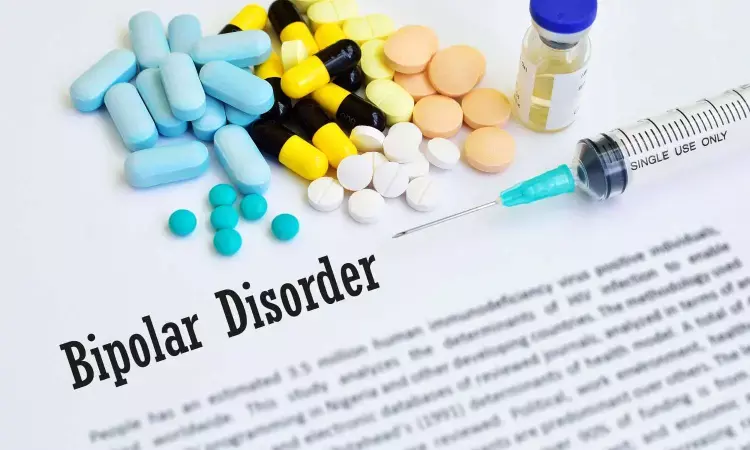- Home
- Medical news & Guidelines
- Anesthesiology
- Cardiology and CTVS
- Critical Care
- Dentistry
- Dermatology
- Diabetes and Endocrinology
- ENT
- Gastroenterology
- Medicine
- Nephrology
- Neurology
- Obstretics-Gynaecology
- Oncology
- Ophthalmology
- Orthopaedics
- Pediatrics-Neonatology
- Psychiatry
- Pulmonology
- Radiology
- Surgery
- Urology
- Laboratory Medicine
- Diet
- Nursing
- Paramedical
- Physiotherapy
- Health news
- Fact Check
- Bone Health Fact Check
- Brain Health Fact Check
- Cancer Related Fact Check
- Child Care Fact Check
- Dental and oral health fact check
- Diabetes and metabolic health fact check
- Diet and Nutrition Fact Check
- Eye and ENT Care Fact Check
- Fitness fact check
- Gut health fact check
- Heart health fact check
- Kidney health fact check
- Medical education fact check
- Men's health fact check
- Respiratory fact check
- Skin and hair care fact check
- Vaccine and Immunization fact check
- Women's health fact check
- AYUSH
- State News
- Andaman and Nicobar Islands
- Andhra Pradesh
- Arunachal Pradesh
- Assam
- Bihar
- Chandigarh
- Chattisgarh
- Dadra and Nagar Haveli
- Daman and Diu
- Delhi
- Goa
- Gujarat
- Haryana
- Himachal Pradesh
- Jammu & Kashmir
- Jharkhand
- Karnataka
- Kerala
- Ladakh
- Lakshadweep
- Madhya Pradesh
- Maharashtra
- Manipur
- Meghalaya
- Mizoram
- Nagaland
- Odisha
- Puducherry
- Punjab
- Rajasthan
- Sikkim
- Tamil Nadu
- Telangana
- Tripura
- Uttar Pradesh
- Uttrakhand
- West Bengal
- Medical Education
- Industry
Iloperidone Shown to be Effective in Bipolar I Disorder in Phase III Clinical Study

According to results from a phase 3 study, Iloperidone was linked to significant improvement in adults with bipolar I disorder.
In clinical study VP-VYV-683-3201 approximately 400 volunteers with a history of bipolar I disorder suffering from a current episode of mania were randomized to receive either Fanapt® or placebo in a 1:1 ratio at clinical sites in the United States, Bulgaria and Poland. The primary endpoint measured in Week 4 of treatment was assessed by the Young Mania Rating Scale (YMRS), a rating scale of clinical severity in the core symptoms of mania. At the end of the study (Week 4), Fanapt® treated patients showed a larger improvement than placebo treated patients, and this difference was highly statistically significant (p=0.000008).
YMRS was assessed at the end of Weeks 1, 2, 3 and 4. Statistically significant benefit in the Fanapt® group over placebo was observed as early as the Week 2 assessment. Consistent with the total YMRS score, the individual YMRS subscale items also showed improvement in the Fanapt® group versus the placebo group over the course of the 4-week study. Other outcomes, such as Clinician Global Impression of Severity (CGI-S) and Clinician Global Impression of Change (CGI-C), also achieved statistical significance (p=0.0005 and p=0.0002, respectively).
"The robust clinical trial results we report today demonstrate the potential to extend the utility of Fanapt into treating adult patients with bipolar I disorder, in addition to the already marketed indication of schizophrenia," said Mihael H. Polymeropoulos, M.D., Vanda's President, CEO and Chairman of the Board. "We look forward to submitting our supplemental New Drug Application to the FDA and expanding the Fanapt franchise."
Bipolar disorder is highly prevalent in the United States, estimated to affect 2.8%1, of the U.S. adult population, a number approximately up to ten times higher than the estimated prevalence of schizophrenia.
Vanda plans to submit this pivotal study data of Fanapt® for the treatment of acute manic and mixed episodes associated with bipolar I disorder in adults in a supplemental New Drug Application (sNDA) in 2023.
Dr Kamal Kant Kohli-MBBS, DTCD- a chest specialist with more than 30 years of practice and a flair for writing clinical articles, Dr Kamal Kant Kohli joined Medical Dialogues as a Chief Editor of Medical News. Besides writing articles, as an editor, he proofreads and verifies all the medical content published on Medical Dialogues including those coming from journals, studies,medical conferences,guidelines etc. Email: drkohli@medicaldialogues.in. Contact no. 011-43720751


